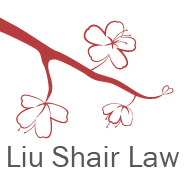What do I do with my Estate Plan if I get married?
When clients are unmarried at the time that they set up their Estate Plan, their typical Estate Plan includes their trust that delineates their wishes should they become incapacitated or pass away, in addition to a will, financial power of attorney, and health care directive. This allows them to ensure their loved ones do not have to go through Probate court proceedings if they pass away and to make their wishes clear. This also authorizes who is able to make decisions on their behalf should they be incapacitated to avoid the risk of Conservatorship court proceedings.
Sometimes, clients may later decide to get married or enter a registered domestic partnership. This can be an exciting time of union and partnership, which comes with different logistics, both romantically and logistically. When considering these relationship changes, it is vital to revisit your Estate Plan. You may also be deciding whether to also engage a Family Law attorney to set up prenuptial agreements or other arrangements. This is especially important If a client is considering keeping their assets separate from their future spouse for a variety of different reasons.
Depending on how you and your future spouse have decided to allocate your assets, your Estate Plan may be handled quite differently. If you have decided to set up a prenuptial agreement so that your premarital assets are separate, you may be keeping your existing trust (and updating it to reference your marital status so that there is no pretermitted or unintentionally omitted spouse) to hold premarital assets and then setting up a joint trust for combined community property assets. If all assets are being combined, then we may be considering revoking your current trust and setting up a joint trust.
In California, having a joint trust is possible because when individuals are married to each other, they have community property and also have certain tax benefits together such that they can combine their assets without it being considered a gift.
Having your own separate Trust when you are married is only possible if the assets are considered your separate property (e.g. if you have a prenuptial or postnuptial agreement, have distinct separate property). Please note that having a separate Trust does not by itself determine whether an asset is your separate property. A Family Law attorney would be best able to advise on how to legally maintain your separate property appropriately, such that it does not get commingled with your spouse or become community property over time.
What trusts you decide to maintain will be highly dependent on your family dynamics, discussions with your future spouse, the nature of your wishes for the asset distribution, as well as who you would want to be involved with carrying out your wishes. It is crucial that you talk with your attorney so that you can collaborate on the best solution for your needs.
After you have squared away your Estate Planning, you will also want to review the titling on your accounts, assets, real property, and beneficiary designations to ensure that everything reflects your current wishes. If assets are not appropriately connected to the correct Trust or designated to the appropriate beneficiary, then your wishes for those assets may not be able to appropriately follow your Estate Plan.=
Note: I am not a Family Law attorney and am not representing what the marriage process may look like for your family. Additionally, this blog post is not considered legal advice and reviewing its contents does not constitute an attorney-client relationship.
